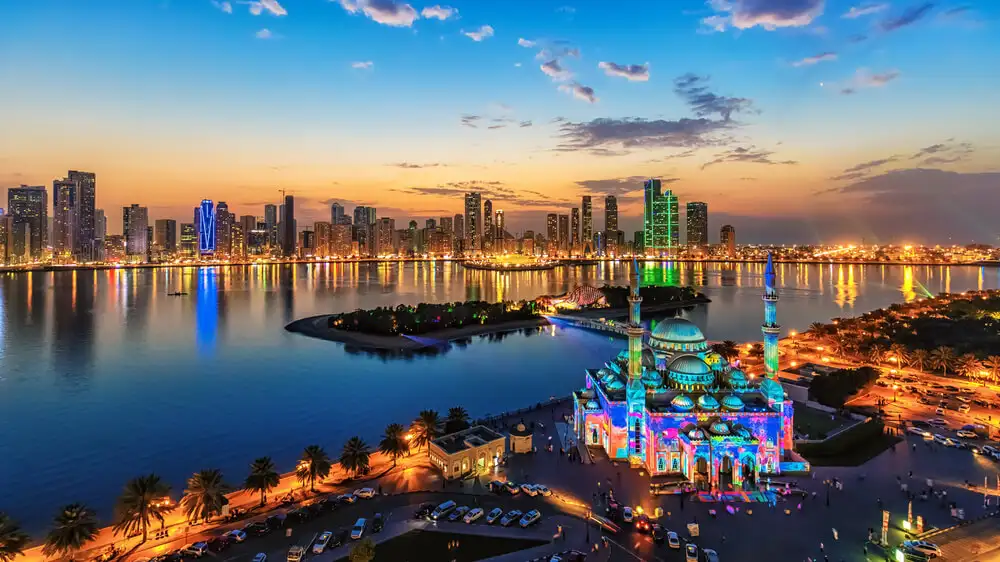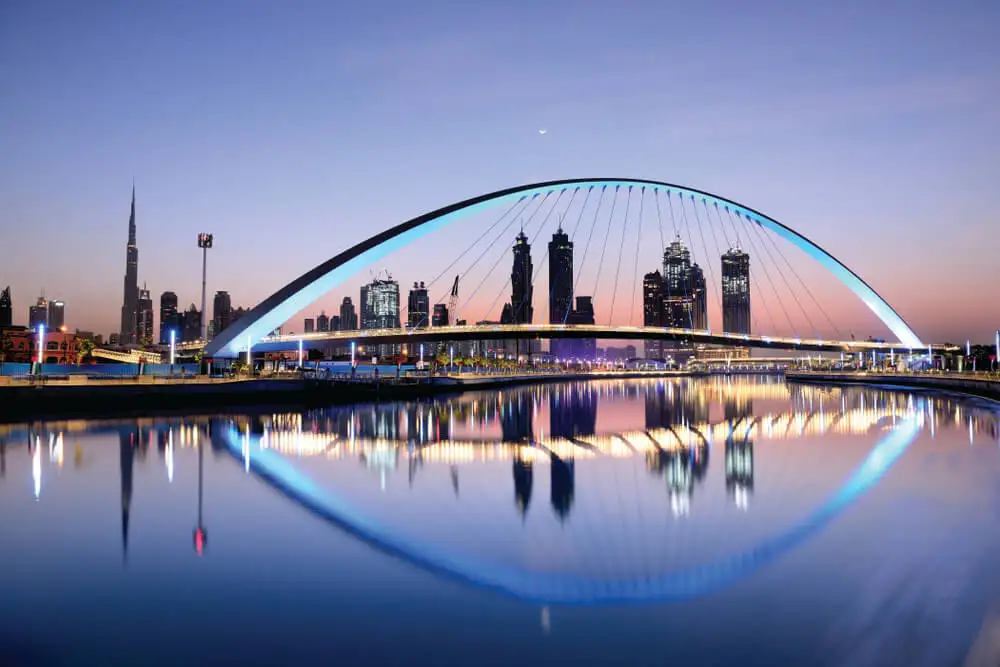Record-Breaking Revenues: UAE’s Hotel Industry Soars to $7 Billion
The United Arab Emirates (UAE) is experiencing a remarkable resurgence in its tourism sector, with hotels in the country reporting substantial growth in revenues and a surge in the number of visitors. According to the state news agency, Wam, the UAE’s hotels recorded a 24 percent annual increase in revenues, reaching an impressive Dh26 billion (approximately $7.1 billion) during the first seven months of the year. This surge is attributed to the remarkable rebound in the country’s tourism sector, a testament to the Emirates’ commitment to fostering its role as a global travel destination.
The Minister of Economy, Abdulla bin Touq, who also heads the Emirates Tourism Council, shared these remarkable statistics. He revealed that hotels in the UAE hosted an astounding 16 million guests during this period, signifying an impressive growth of more than 15 percent compared to the same period in the previous year. Furthermore, a staggering total of 56 million hotel nights were booked, showcasing a considerable increase in occupancy rates, up by 5 percent annually to 75 percent, from January to July.
One of the key highlights of this growth is the increase in the number of hotels in the UAE, which has reached a total of 1,224 establishments. These impressive figures have a twofold impact. Not only do they contribute to enhancing the UAE’s competitiveness on the global tourism stage, but they also play a pivotal role in achieving the national objective of elevating the tourism sector’s contribution to the gross domestic product (GDP) to Dh450 billion by the next decade, aligning with the UAE’s visionary plan known as “We The UAE 2031.”
The remarkable growth in the travel and tourism sector is not only a regional phenomenon but is also being acknowledged at the global level. The World Travel and Tourism Council (WTTC) reported that the travel and tourism sector is projected to contribute Dh180.6 billion to the UAE’s economy this year. This represents nearly 10 percent of the total GDP, demonstrating the significant role that tourism plays in the country’s economic landscape. Importantly, this estimate for 2023 is only 1.6 percent lower than the pre-pandemic high of Dh183.4 billion in 2019, as noted by the WTTC. Last year, the travel and tourism sector’s contribution to the UAE’s GDP witnessed a remarkable surge, growing by over 60 percent to reach nearly Dh167 billion, representing 9 percent of the country’s economy, according to the WTTC.

A key indicator of this resurgence is the number of international visitors to Dubai, which has exceeded pre-coronavirus levels in the first half of this year. International visits to Dubai rose by an impressive 20 percent on an annual basis in the January to June period, as reported by the Dubai Media Office. This data is corroborated by the Department of Economy and Tourism in Dubai, and it showcases that Dubai is continuing to be a magnet for global travelers. During this period, the emirate welcomed a staggering 8.55 million international visitors, marking its best first-half performance to date. This figure exceeded the pre-pandemic tally of 8.36 million tourists in the first half of 2019. Such remarkable growth underscores Dubai’s resilience and appeal as a premier global tourist destination.
Abu Dhabi, the UAE’s capital, is also on track to attract more visitors, with the aim of reaching 24 million visitors this year, up from 18 million the previous year. This goal reflects the emirate’s commitment to further diversify its tourism sector and increase its contribution to the GDP. In the short term, Abu Dhabi plans to raise the tourism sector’s contribution to its GDP to 12 percent by 2030, a significant increase from the current 5 percent contribution. This ambitious target is part of the broader vision to position Abu Dhabi as a global tourism hub.
The Emirates Tourism Council has been actively engaged in the formulation and execution of a comprehensive National Tourism Strategy 2031. Launched in November, this strategy has set forth a visionary roadmap for the UAE’s tourism sector. It aspires to attract a staggering 40 million hotel guests by 2031 and attract Dh100 billion in tourism investment to the UAE. The strategy’s centerpiece is an annual increase of Dh27 billion in the tourism sector’s contribution to the GDP, with the ultimate goal of reaching Dh450 billion by 2031. This strategy encompasses 25 initiatives and policies that aim to fortify the national tourism identity, diversify specialized products, build capabilities, encourage Emiratis to actively participate in the sector, and attract increased investments.
Furthermore, the National Tourism Strategy 2031 is poised to stimulate investment in travel, aviation, and hospitality. It is designed to create new opportunities for investors and attract more international companies to enter the local market. This expansion is not only expected to enhance the UAE’s position as a global tourism leader but will also invigorate its economy through substantial investment inflows and job creation.
In addition to the impressive growth in the UAE’s tourism sector, the Emirates Tourism Council recently reviewed the “world’s coolest winter campaign,” the UAE’s first federal domestic tourism initiative. This campaign has proven to be a resounding success, leading to a 20 percent annual increase in hotel revenues, reaching Dh1.8 billion, compared to Dh1.5 billion in the previous winter. In the current campaign, the number of domestic tourists surged to 1.4 million, showcasing an increase of 8 percent over the previous year. This initiative underscores the potential for the UAE to not only attract international tourists but also to promote domestic tourism, thereby further diversifying and strengthening the sector.
Recognizing the need for continued growth and sustainability in the hospitality and tourism sector, the Emirates Tourism Council has recorded the formation of a hospitality advisory committee. This committee has a strategic mission to stimulate growth, enhance competitiveness, and diversify the sector in alignment with international best practices. Key objectives include improving the UAE’s appeal for tourism investments, creating innovative tourism initiatives, and fostering strong collaboration with private sector institutions and companies operating in the hospitality sector.
Conclusion,
The United Arab Emirates is witnessing a remarkable resurgence in its tourism sector. The UAE’s commitment to expanding and diversifying its tourism offerings, coupled with robust strategies and initiatives, has yielded impressive results. With ambitious goals and a vision to become a global tourism leader, the UAE is well on its way to achieving its objectives. The remarkable growth in hotel revenues, the influx of international visitors, and the successful domestic tourism campaigns all point towards a bright future for the country’s tourism industry. As the world continues to navigate the challenges of the post-pandemic era, the UAE stands out as a beacon of hope and prosperity in the realm of travel and tourism.

